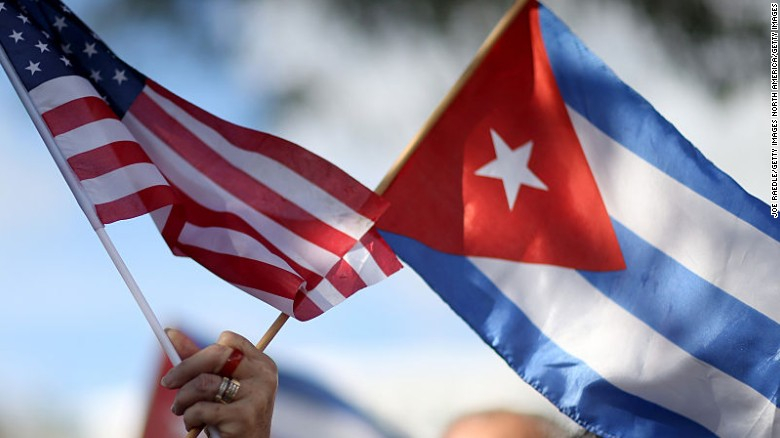[photo – CNN Español]
Cuba’s President, Miguel Díaz-Canel, has recognised the outcome of the US elections. Writing in a Tweet on 8 November, he noted ‘The US people have chosen a new direction in the presidential elections. We believe in the possibility of a constructive bilateral relationship respectful of differences’.
Although Cuba has yet to say more officially, early commentary on the state media platform Cubadebate indicated concern that the perceived importance of the Cuban American vote in Florida may impact negatively on the development of future US policy towards Cuba. ‘By focussing on that tiny vote, in national terms, both parties are unaware of the position of broad sectors of US voters who favour the most normalised relationship possible with Cuba and who have specific interests in business, science, culture, academic relations, health and other sectors’, an opinion piece observed.
In other commentary, José Pertierra, a Cuban émigré and leading Washington based migration lawyer who has previously represented Cuban and Venezuelan interests in the US, told Radio Havana that he was “optimistic that the Biden administration will return to the Obama position of 2016, but may only do so gradually. “I don’t think Biden is as bold as Obama. He is more cautious, and it is politically easier to impose sanctions than to remove them”, he said. He also noted that the team chosen to advise him on foreign relations with Latin America was neither ‘creative or audacious’. “Mark Feierstein, Dan Restrepo, Juan Sebastián González, and Dan Erikson”, he observed “stand out more for not wanting to create waves in Washington than for rectifying the worn-out neoliberal policy”.
Pertierra set out a menu of options that he believed President Elect Biden might choose between. They included: allowing the return of diplomats; lifting the sanctions on remittances; making travel categories more flexible for US citizens wishing to travel to Cuba; again removing Cuba from the list of countries that do not collaborate in the fight against terrorism; eliminating the ban on US citizens staying in hotels that are part of GAESA; and ending the application of Title III of Helms-Burton. He also suggested that Washington should move to end the policy of pressuring other countries not to use Cuban doctors, or to abandon their posts overseas, proposing instead collaboration with Cuba and instead discussing possible areas of collaboration in relation to the pandemic.
“But let’s not get our hopes up with Biden. He also wants regime change on the island”, Pertierra told Radio Havana’s listeners, indicating that what Cuba most required from the incoming US administration was “decency and respect”.
Before the election the Biden team made clear that while they want to retore a working relationship with Cuba, progress toward one that is more normal will be gradual and cannot be the same as that which existed during the Obama period of détente (See Cuba Briefings 2 November and 12 October 2020).
Their caution appears to reflect concern about Latin voter perceptions in Florida, and more widely among Republicans generally, that criticism of Biden being a ‘socialist’ for his stance on Venezuela and Cuba stuck, and impacted to the Democratic Party’s detriment in what was once seen as a swing state.
Although the new Cuba policy may take time to emerge, it is widely expected to eventually involve a negotiated step by step approach that seeks to ease tensions, restores cooperation on issues of mutual interest relating to security, addresses the US’s border refugee crisis, establishes support for the Cuban people on a multilateral basis, and slowly restores travel, trade and limited forms of cooperation. One early indication of the likely direction of Cuba policy will be whether the sanctions imposed on Western Union’s money transfer operations to Cubans are lifted on humanitarian grounds.
On security, while the US’s overall regional and hemispheric concerns are unlikely to alter, of particular significance is an awareness in the Biden camp that the vacuum created by the Trump administration’s policy of isolating Cuba has offered geopolitical opportunity to Russia, China, Iran, and others.
The Caribbean Council is able to provide further detail about all of the stories in Cuba Briefing. If you would like a more detailed insight into any of the content of today’s issue, please get in touch






